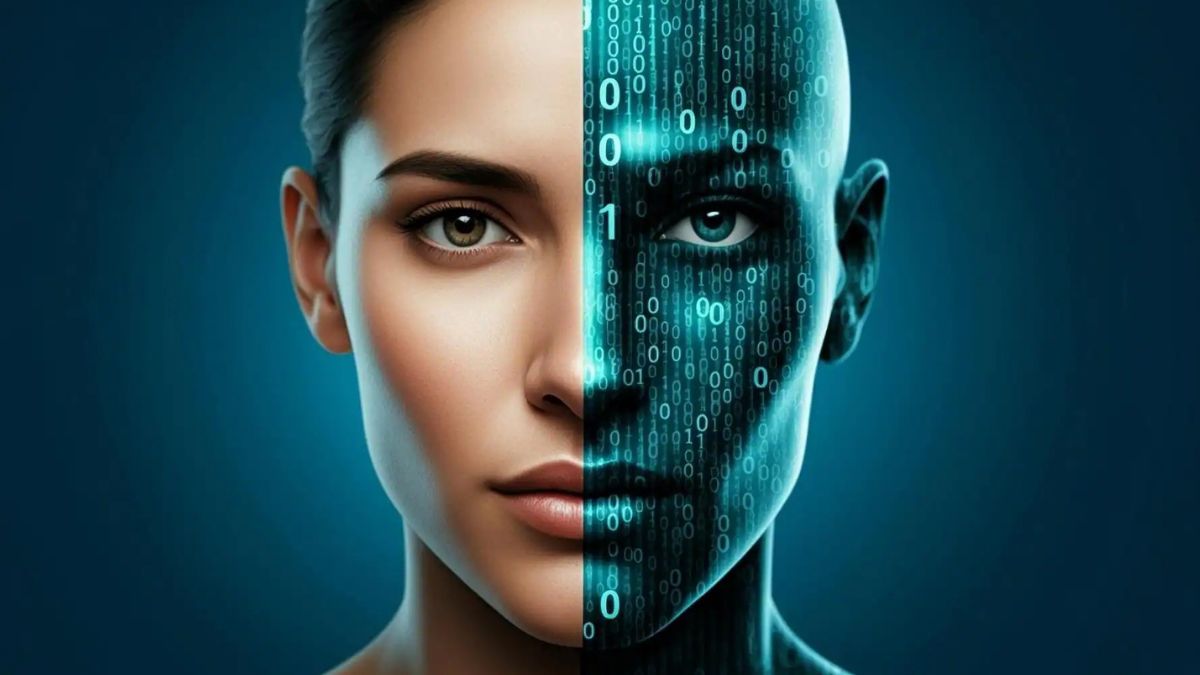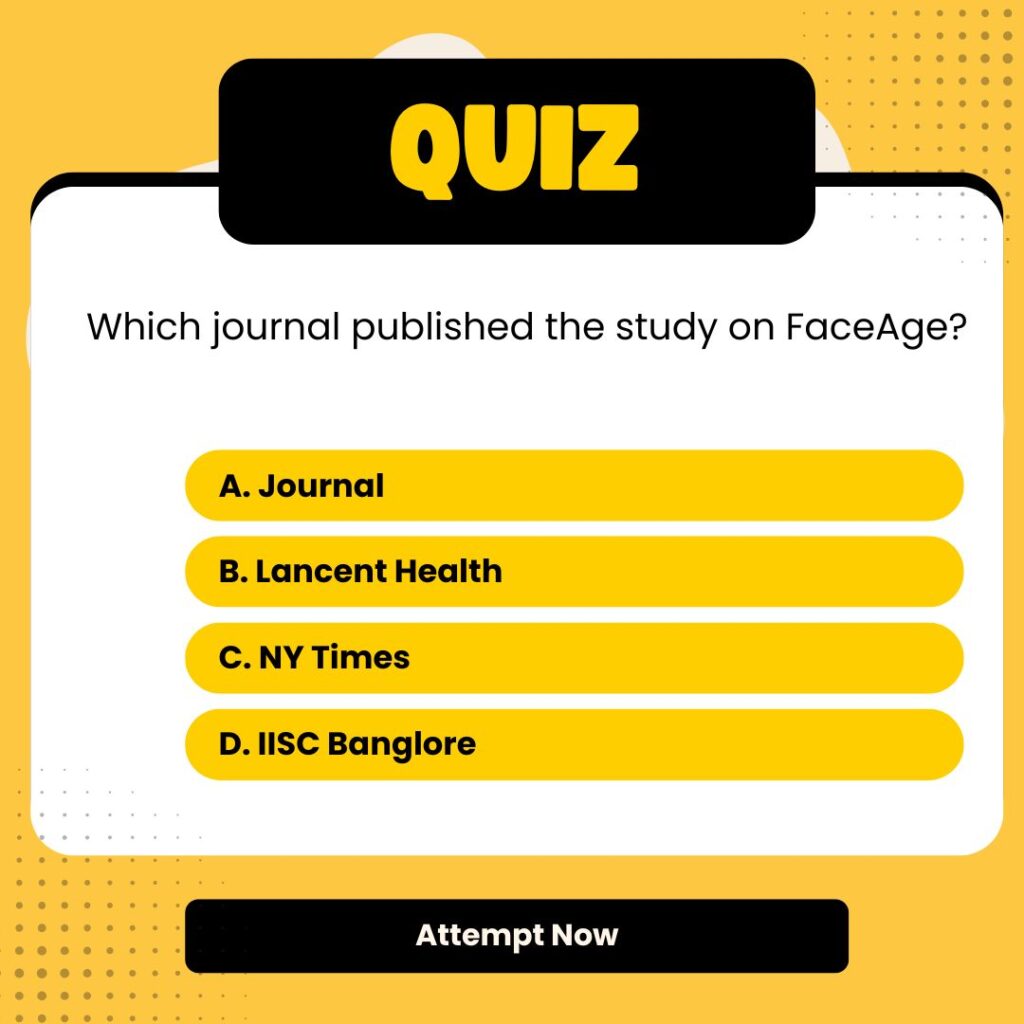A groundbreaking artificial intelligence (AI) tool called FaceAge has emerged as a promising advancement in personalized medicine. Developed using deep learning techniques, FaceAge analyzes a person’s selfie to determine their biological age, which may differ from their actual or chronological age. Published in The Lancet Digital Health, the tool is designed to assist clinicians, especially in cancer care, by helping identify patients who may tolerate aggressive treatments and those who require gentler approaches. However, its application also raises ethical concerns, especially regarding potential misuse in insurance and employment.
Why in News?
The AI-powered tool FaceAge has gained attention following its recent publication in The Lancet Digital Health. Researchers revealed its potential to improve cancer treatment planning by accurately assessing biological age. The development has stirred interest due to its potential clinical value as well as the ethical debates it raises regarding bias, privacy, and misuse.
Aim and Objectives
- To estimate biological age using facial images through AI analysis.
- To assist doctors in making more informed decisions in cancer treatment, surgery, and care planning.
- To improve prognostic accuracy in terminal illnesses.
Background
- Doctors often rely on visual assessments (“eyeball test”) to gauge patient frailty.
- Biological age reflects actual physiological condition, which can differ due to lifestyle, genetics, and illness.
- Traditional tools to determine biological age include DNA-based tests, which are expensive and time-consuming.
How FaceAge Works
- Trained on 58,851 photos of presumed-healthy adults (60+ years).
- Tested on 6,196 cancer patients in the U.S. and Netherlands.
- Estimated cancer patients to be biologically 4.79 years older than their chronological age.
- Can predict six-month survival rates in terminal cancer patients more accurately than physicians alone.
Significance
- A patient with biological age >85 showed significantly reduced survival rates.
- FaceAge helped improve physician accuracy in predicting outcomes when paired with their assessments.
- Highlights how subtle facial features (not hair color or balding) contribute to aging signs.
Key Findings
- Validates that biological aging varies widely across individuals.
- Indicates that AI can outperform humans in detecting certain health indicators.
- Open questions remain about how external factors like makeup or lighting may affect results.
Concerns and Ethics
- Risk of misuse by life insurers or employers.
- Concerns about racial bias, though early analysis shows minimal bias.
- Development of a second-generation model based on 20,000 patients underway to ensure fairness.
- Calls for ethical regulations and transparency in deployment.
Future Plans
- Public-facing portal in development to let users upload selfies and participate in validation studies.
- Commercial clinical versions may follow post further validation.
| Summary/Static | Details |
| Why in the news? | FaceAge: AI Tool Uses Selfies to Predict Biological Age and Cancer Outcomes |
| Purpose | Estimate biological age from selfies for cancer treatment decisions |
| Developed By | Researchers at Mass Brigham Health, Harvard-affiliated system |
| Data Used | 58,851 healthy portraits; tested on 6,196 cancer patients |
| Key Findings | Cancer patients biologically ~5 years older; higher age = worse survival |
| Benefits | Improved doctor accuracy, low-cost assessment method |
| Concerns | Bias, ethical misuse by insurers/employers |
| Future Steps | Public selfie portal, second-gen model, commercial rollout post-validation |




 Made in India: Nadda Launches Indigenous...
Made in India: Nadda Launches Indigenous...
 Reliance Announces ₹10 Trillion AI Inves...
Reliance Announces ₹10 Trillion AI Inves...
 GalaxEye’s AI-Powered OptoSAR Satellite ...
GalaxEye’s AI-Powered OptoSAR Satellite ...








